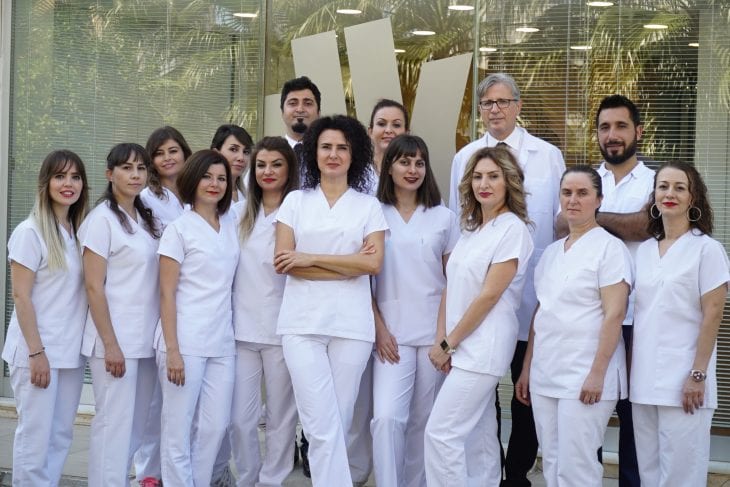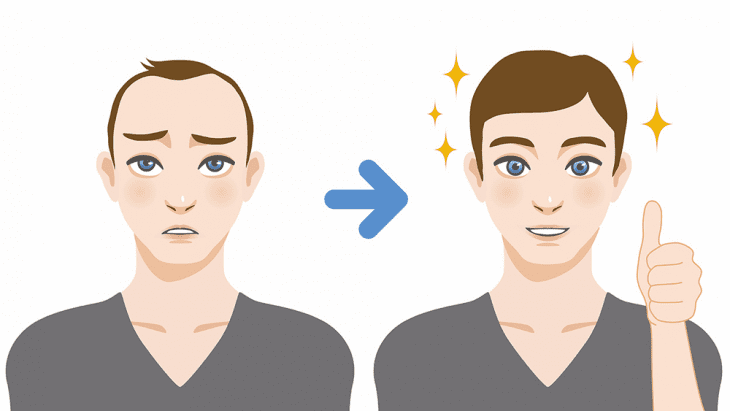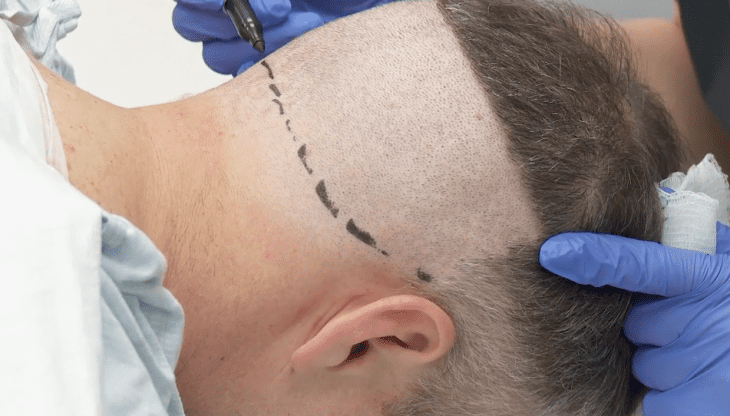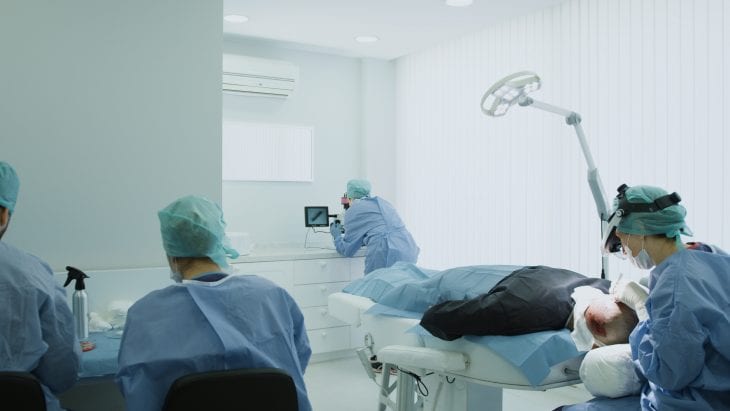Every year, more and more people travel to other countries to get medical services. Turkey has come to the fore lately, especially in the area of hair transplants.
In 2018 – just like in the last five years -Turkey was a leader in hair transplant cases performed in the country. This is thanks to the relatively low prices on hair transplantation, high quality services and success rates of the procedures.
The total global trade value of the hair transplant industry is over $ 2.5 billion. Turkey heads the list with its industry value approaching $ 1 billion.
In recent years, hair transplantation and holiday packshave been widely mentioned together. Thanks to a favorable geographical location some clinics in Turkey can offer their patients an opportunity to have this unique experience.
To learn about the subject in detailwe had an interview with Dr. MeltemŞentürk, the founder of DK Hair Klinik,which specializes in hair transplant in Antalya – one of the world’s most preferred holiday destinations.

Contents
- Dr.Meltem, everyone assumes the reasonsfor Turkish success, but why exactly are so many hair transplant cases performed in Turkey?
- What isthe biggest obstacle forthe patients who want to come to Turkey for hair transplants?
- Are there any risks of hair transplants? Or rather is it riskier to have hair transplant done in Turkey?
- Your region is very popular among tourists. Are there people who want to have a hair transplantcombined with a holiday?
- Can you expand on this a little bit?
- How does the process work for a person who decides to transplant hair?
- Finally, what is your advice to those who want to have their hair transplant done in Turkey?
Dr.Meltem, everyone assumes the reasonsfor Turkish success, but why exactly are so many hair transplant cases performed in Turkey?
Health services in Europe and America are quite expensive. This situation makes people seek medical treatment abroad. For years people have been coming to Turkey to be treated in many different branches, and most of the time they left highly satisfied with the experience they were provided.
The success rates of hair transplant performed in reliable medical centers in Turkey are at least as high as in Europe or the United States. Patientsgo back to their home countries and share their experiencewith others. Thus, continuous positive feedbackmakesmore people come to Turkey for hair transplants.
High-quality health service for affordable prices is the reason why people prefer Turkey. We are pleased with this situation.
What isthe biggest obstacle forthe patients who want to come to Turkey for hair transplants?
Trust. Some people are on the fence when it comes to getting an esthetic procedure done abroad. Because they are going to a country they are not familiar with. Most of our patients ask detailed questions about the clinic, almost testing our mastery of the subject. Therefore, we give detailed answers to all the questions they ask to gain the trust of these patients. A patient who has already contacted us for the first time usually arrives to have his/her hair transplantation done after at least 1 month. In the meantime, they keep on asking new questions that come to their mind.

Source: Medgadget
Are there any risks of hair transplants? Or rather is it riskier to have hair transplant done in Turkey?
If ahair transplant clinic is inexperienced, this procedure is risky all over the world.
In Turkey, only hospitals and clinics that have received a specialhair transplant license are allowed toperform hair transplantation.
Some risks include the following:
- The greatest risk of hair transplantis the risk of infection if the procedure is performed in conditions other than surgical sterilization. If you have a hair transplant in a cheaper place where surgical sterilization conditions are not provided, it may eventually cost you much more in terms of health risks and money.
- Some centers tell you the number of hair strands to be planted instead of the number of grafts. For example, if 2500 grafts need to be transplanted, they claim 5000 grafts instead. Thus, the patients aremisledby incorrect information. When they hear the actual graft numberoffered by decent clinics they find this figure very lowand can make a wrong choice. Exaggeration of the number of grafts is one of the serious risks thata patient may face.
- Your donor area may not be enough for hair transplant, so you may not be suitable for hair transplantation procedure. A reliable hair transplant center should openly inform you if you are not eligible for hair transplant and if the transplanted hair will not close the open areas.
Unreliable centers give people hope even if the results will hardly be good. For example, if the patient needs 5000 grafts to close their open areas, but only 1500 grafts can be collected from the donor area, this patient is unlikely to be satisfied by the result. This patient should be referred to options such as hair simulation or prosthesis.
Such patient should be openly informed that the results would not be satisfactory and therefore hair transplantation should not be done.
- If you have high blood pressure or diabetes, you should discuss this with your doctor before the hair transplant. Detailed blood tests should be done before the hair transplant procedure and precautions should be taken if there is a problem that may have risks for the patient’s health. For example, some clinics avoid performing these detailed tests because of their high costs. Therefore, the patient’s health is put at risk.

Source: Dr. Duplechain
Your region is very popular among tourists. Are there people who want to have a hair transplantcombined with a holiday?
Yes, Antalya is one of the destinations preferred by European and Russian tourists especially in spring and summer months. There is a vast accommodation capacity including 5-star hotels that the provide highest quality service.
We also offer the hair transplant price as a package. The price includes 3 or 4-day 5-star hotel accommodation, airport transfers and hair transplant surgery included. We also offer free WhatsApp support after returning to the home country. You can ask questions viaWhatsApp, or call for all your questions. Usually we are asked the following questions:
However, the main motivation for patients is not to have a holiday in Antalya. They primarily want their hair transplant to be successful. Therefore, since we are a health institution, we avoid using hotel accommodation as a marketing element. We think that patients coming to Antalya can arrange their hotel easily themselves.
Can you expand on this a little bit?
I’d like to say that health tourism is accepted all over the world. However, we think that some clinics focus more on tourism rather than health. This is quite unsettling for our sector. In fact, this situation can cause the tourism companies to start providing health services. I think everyone should do their bestin their area of expertise.
How does the process work for a person who decides to transplant hair?
People who visit our website usually contact us via e-mail and ask about the price, details of the operation and our availability.
After we have agreed about the dates, our patients receive the flight tickets.
We ask for a partial prepayment to make a reservation. When this amount is transferred to our account, we reserve the day requested by the patient. When they land at Antalya Airport, they are transferred to the hotel and then brought to our clinic for blood tests.
The hair transplant surgery is performed 1 day after the blood is taken. In case of a large-scale hair transplant (4000 grafts and more) we continue on the second day. As local anesthesia is applied during the operation, the patient feels no pain. We have lunch togetherat our clinic. The day after the operation we do the post-operativecare and send the patientback to his/her country. In case of any questions that come up after returning to home country, the patient can contact us at any time and we will respond shortly.
Finally, what is your advice to those who want to have their hair transplant done in Turkey?
First of all, I would like to share some observations for people who want to have a hair transplant.
Deciding to transplant hair is a very difficult process. According to our research, a person has the hair transplant procedure approximately one year after the decision. Hence, this person reads on the subject, explores the opinions of others for a year and tries to choose the best option.

The Internet is also full of stories of successful hair transplantation. Therefore, doing some research makes the patient feel more comfortable.
My first suggestion to these people is that they should be very clear in their decisions. If they feel ready for this and have evaluated all possible risks and gains ahead of them they will feel more satisfied.
You are having an esthetic surgery. And even though nice looks will not make you healthier,it will make you feel psychologically better.
We observed that many of our patients have improved their career and social life after the hair transplant. Probably one of the reasons is boosting their self-confidence. In addition, our patients start paying more attention to their looksin general. They get involved in sports such as fitness and jogging, which makes us especially happy.
My advice for people who want to have their hair transplant in Turkey:
– Hair transplant centers with a physician who is a member of organizations such as ISHRS or IAHRS have an average price rate. Avoiding places that are far below these prices will secure you in the first place. Hair transplantation services far below the market price often do more than one hair transplant at the same time. I think that it decreases the quality of work in these centers. Be carefulwith centers of this kind.
– Ask detailed questions at the center where you intend to go, observe how quickly they respond and whether their responses are professional.
– Ask them to show you “before-after” photos.
– Contact a hair transplant center directly, not through a healthcare provider/assistant.
– Read the comments on the Internet, but do not forget that these comments can be manipulated. (fake comments are used in the health sector as well as in other areas)
